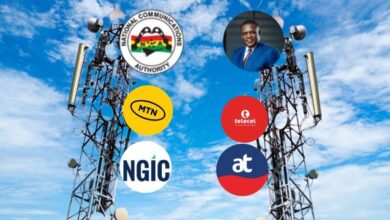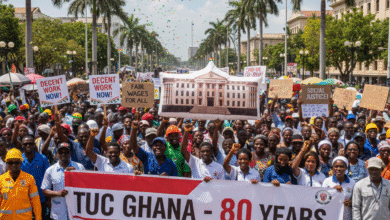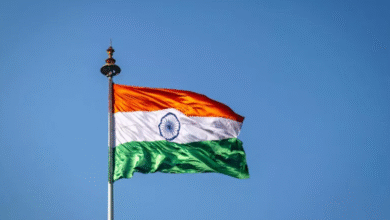High cost of living biting families hard in Ghana
As high inflation continues, the rising cost of goods and services in Ghana has left many local families struggling to make ends meet.
For Mercy Adobea, a 43-year-old hospitality worker, her monthly salary was barely enough to feed her entire household of five.
“I earn about 115 U.S. dollars a month, of which I spend 90 dollars on food and transportation. But because of inflation, I now spend an extra 22 dollars on food and transportation, leaving me with virtually nothing,” said Adobea.
According to her, the continuous rise in the prices of goods and services has reduced her purchasing power, as her monthly income has not increased accordingly.
This, she pointed out, has forced her to cut back on the amount of money she spends on certain goods, even though they are essential for the upkeep of her family.
“How can I take care of the children and myself if there is a health problem? It is high time the government paid attention to the rising cost of living and did something to alleviate our suffering,” she added.
Recent economic conditions have been unbearable for 56-year-old Emmanuel Eshun, an art teacher at a high school in Tema, a port city in southern Ghana. With a wife and three children, he found that the cost of living was becoming too high for his income.
Stressing that the absence of a fixed price system is problematic, Eshun said, “The prices of goods and services in the country are unstable and change from time to time. The same cannot be said about our income levels, as they are increased annually at very low rates. This makes planning for the family and meeting other expenses difficult.”
Ghana’s economy has faced serious challenges in recent years, including soaring inflation, currency volatility, escalating public debt, and the rising cost of living.
The Ghana Statistical Service announced last week that the country’s inflation rate climbed to 25.8 percent year on year in March, after easing to 23.2 percent in February.
The Ghanaian government secured a 3-billion-dollar loan from the International Monetary Fund last May, hoping to steer the economy toward recovery.
“We hope that recovery will come soon,” Eshun added.




